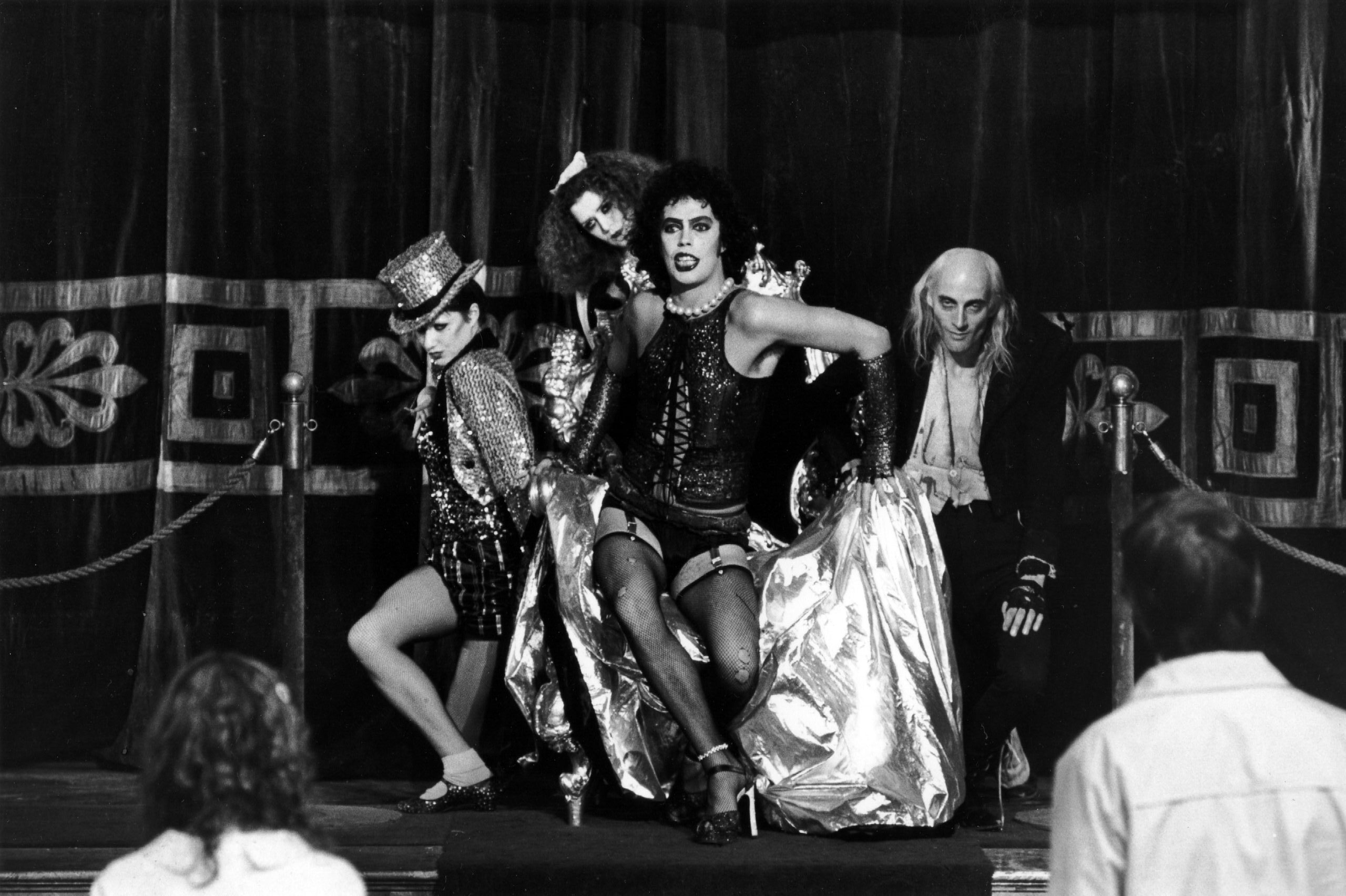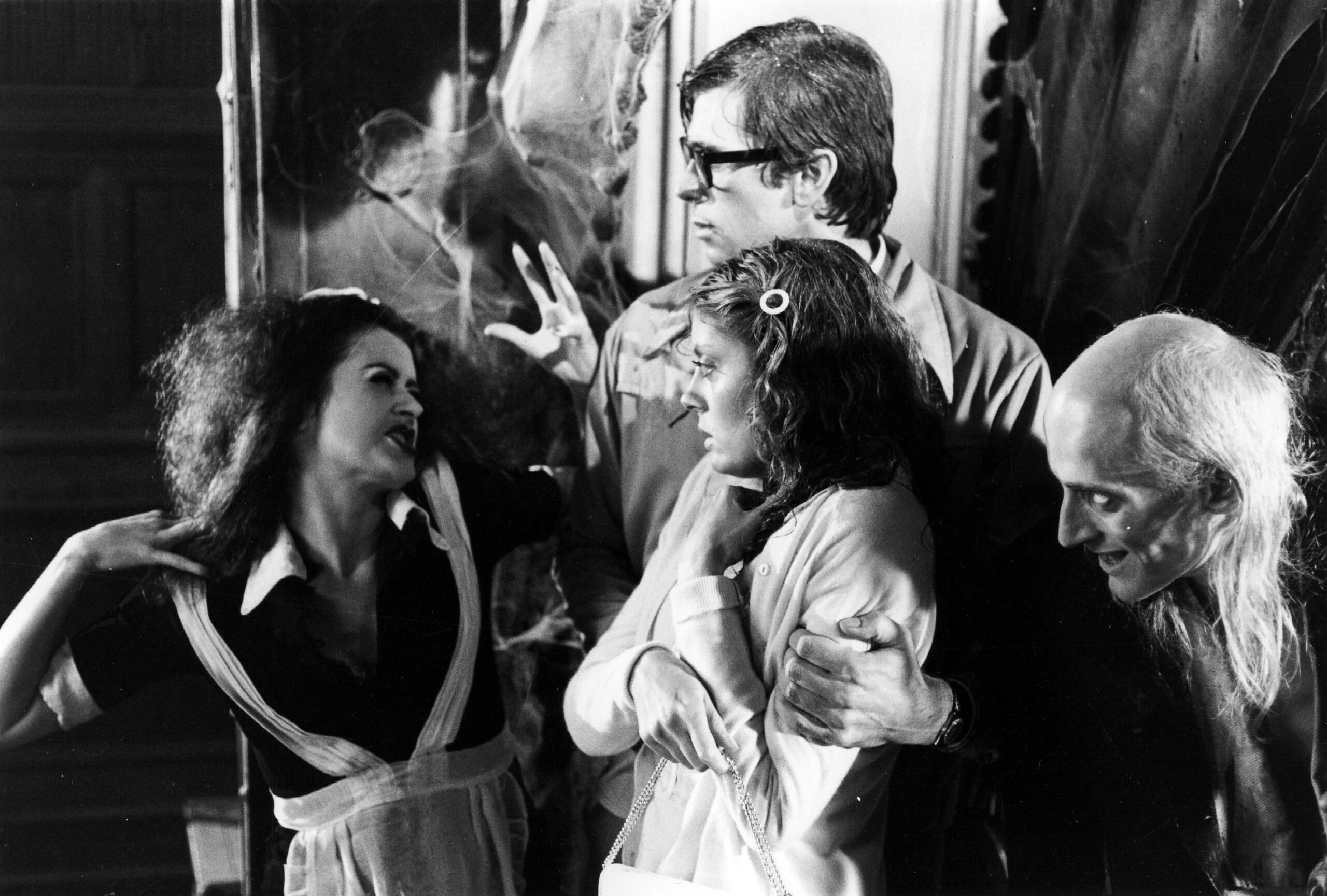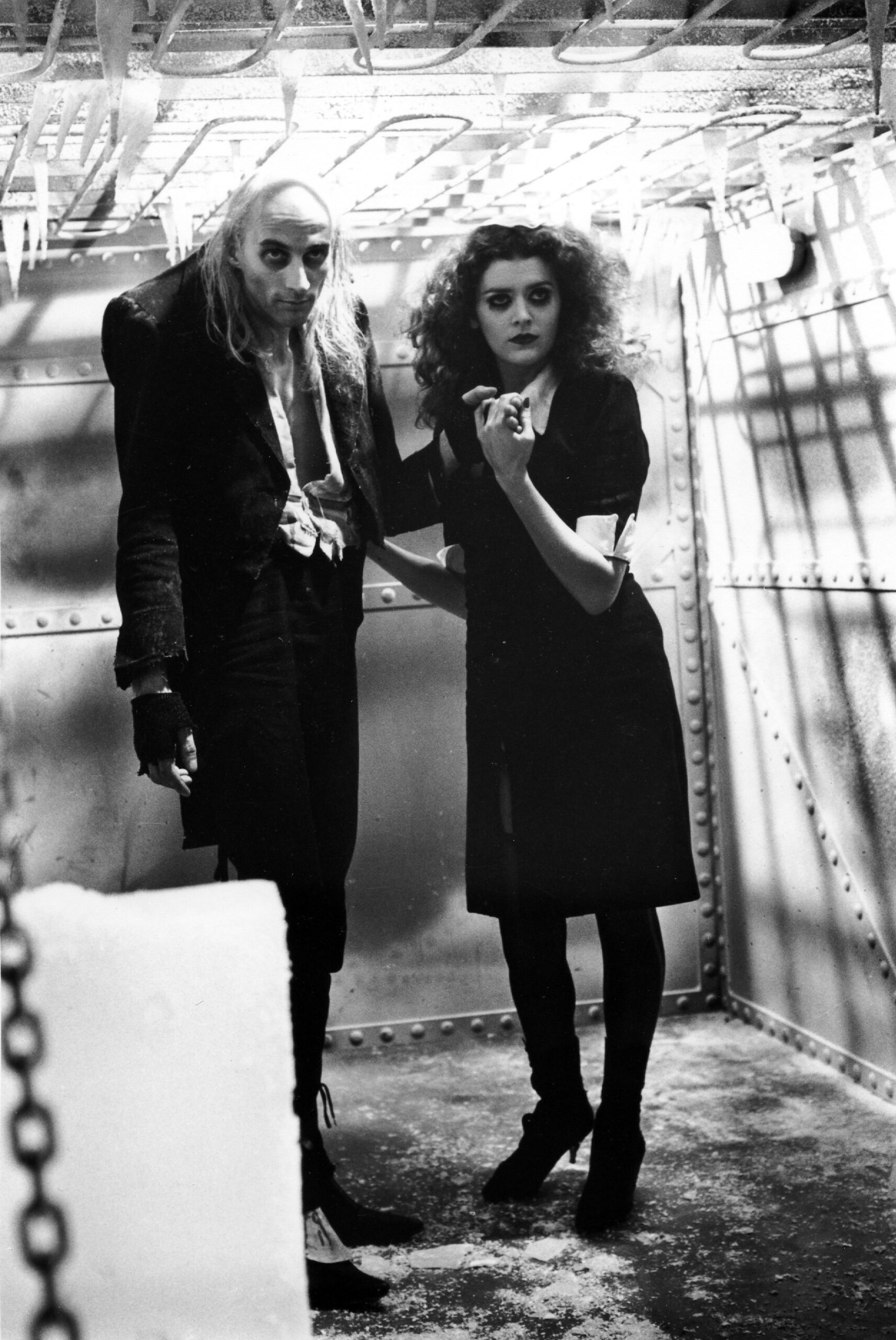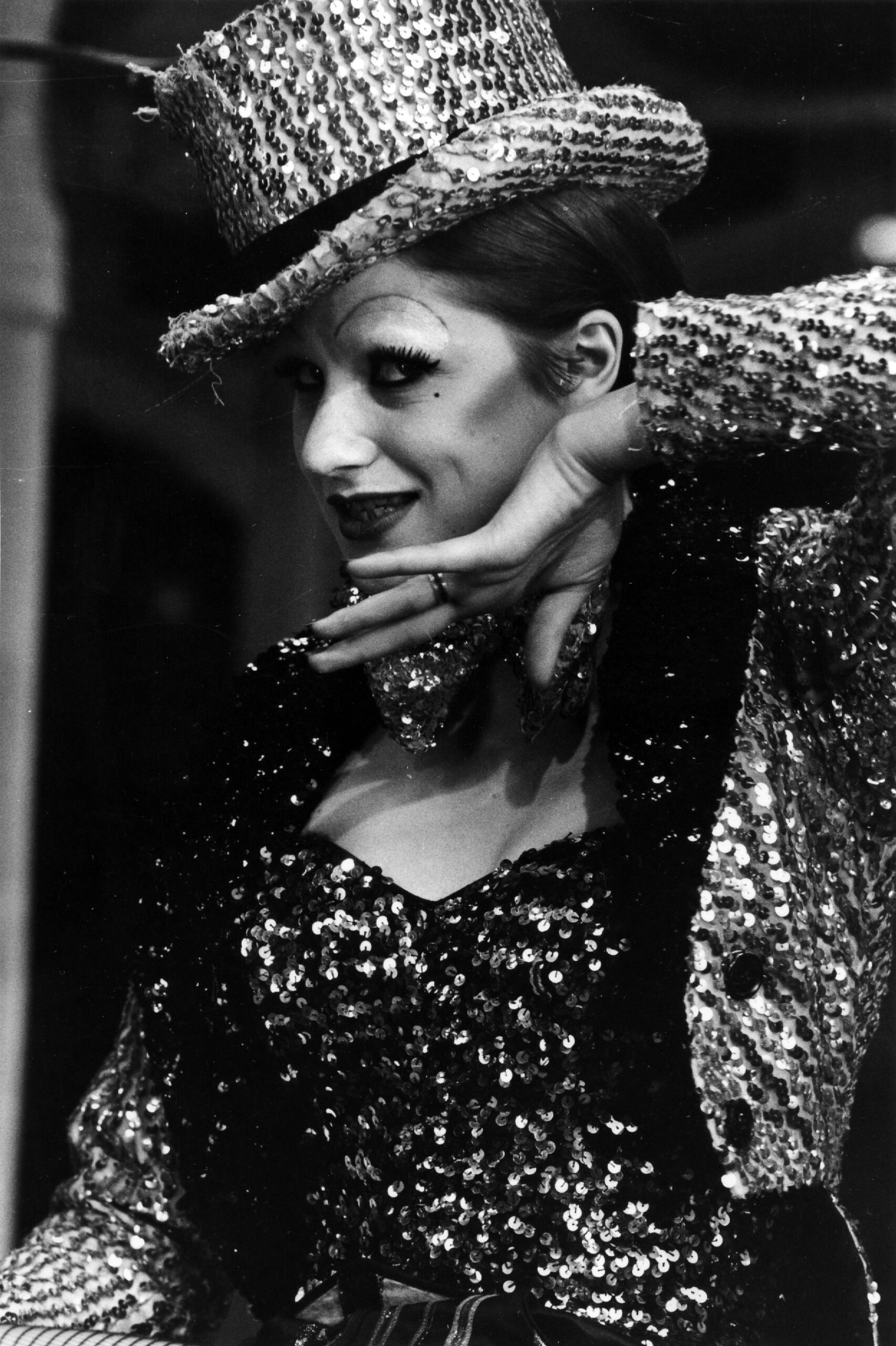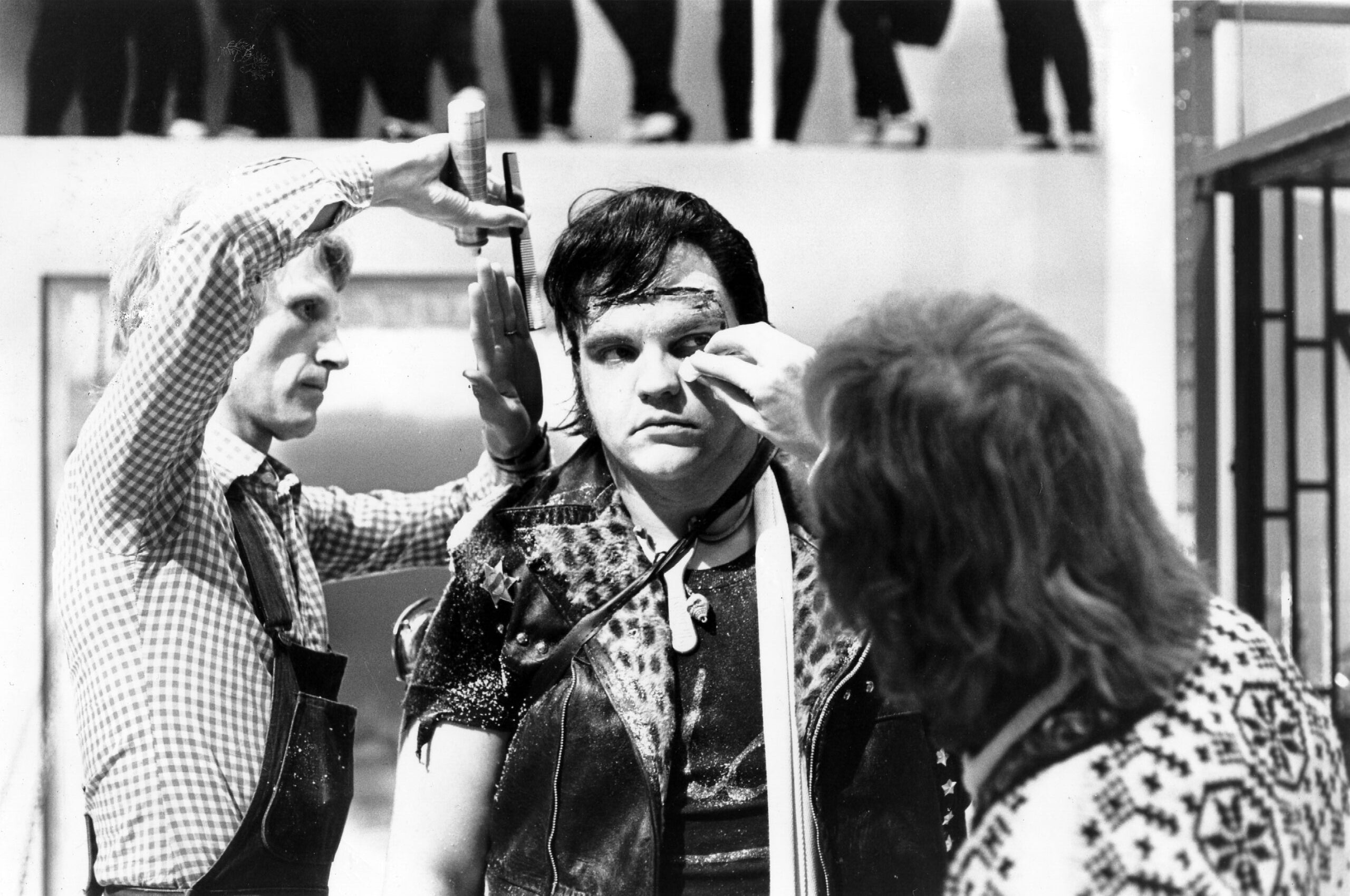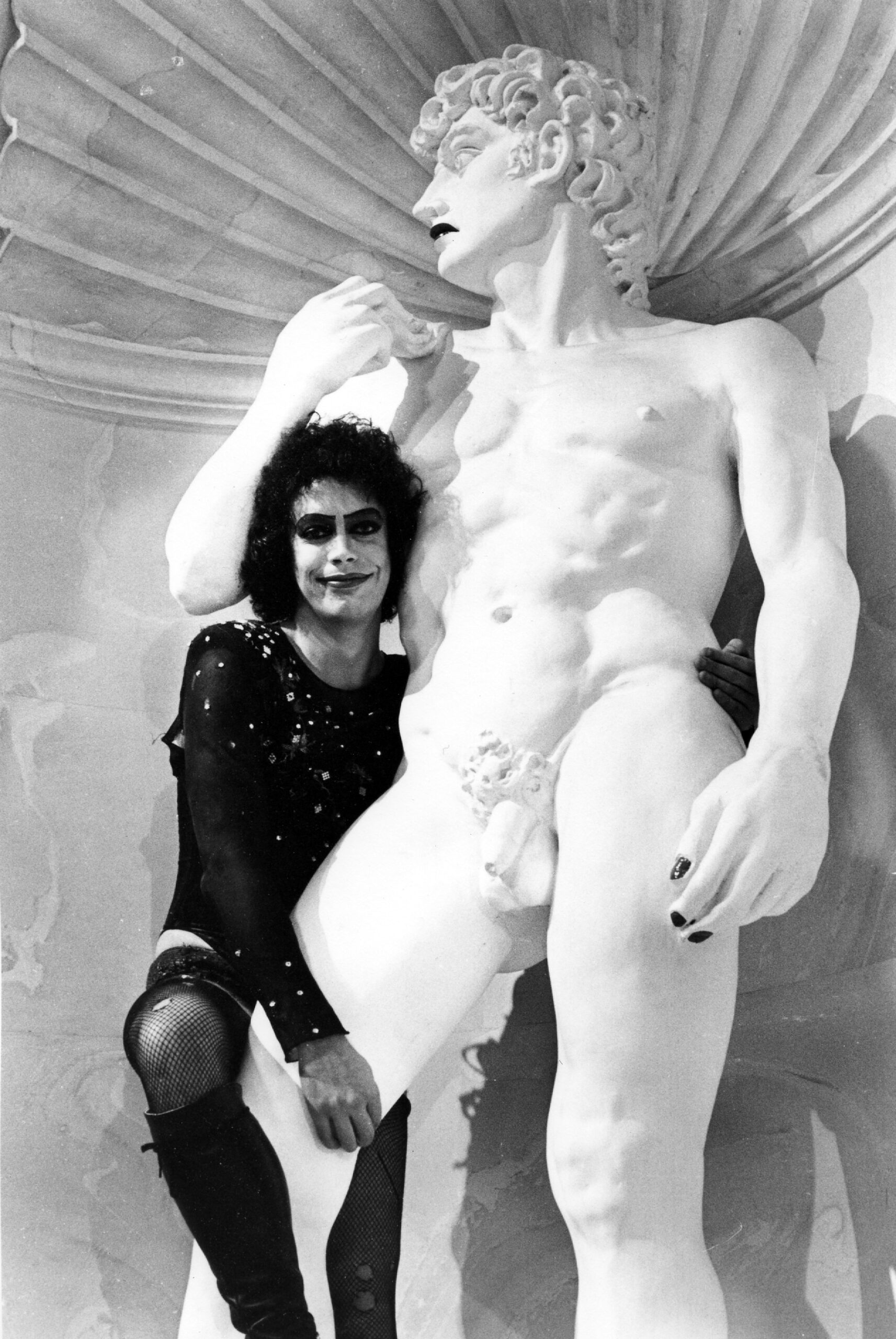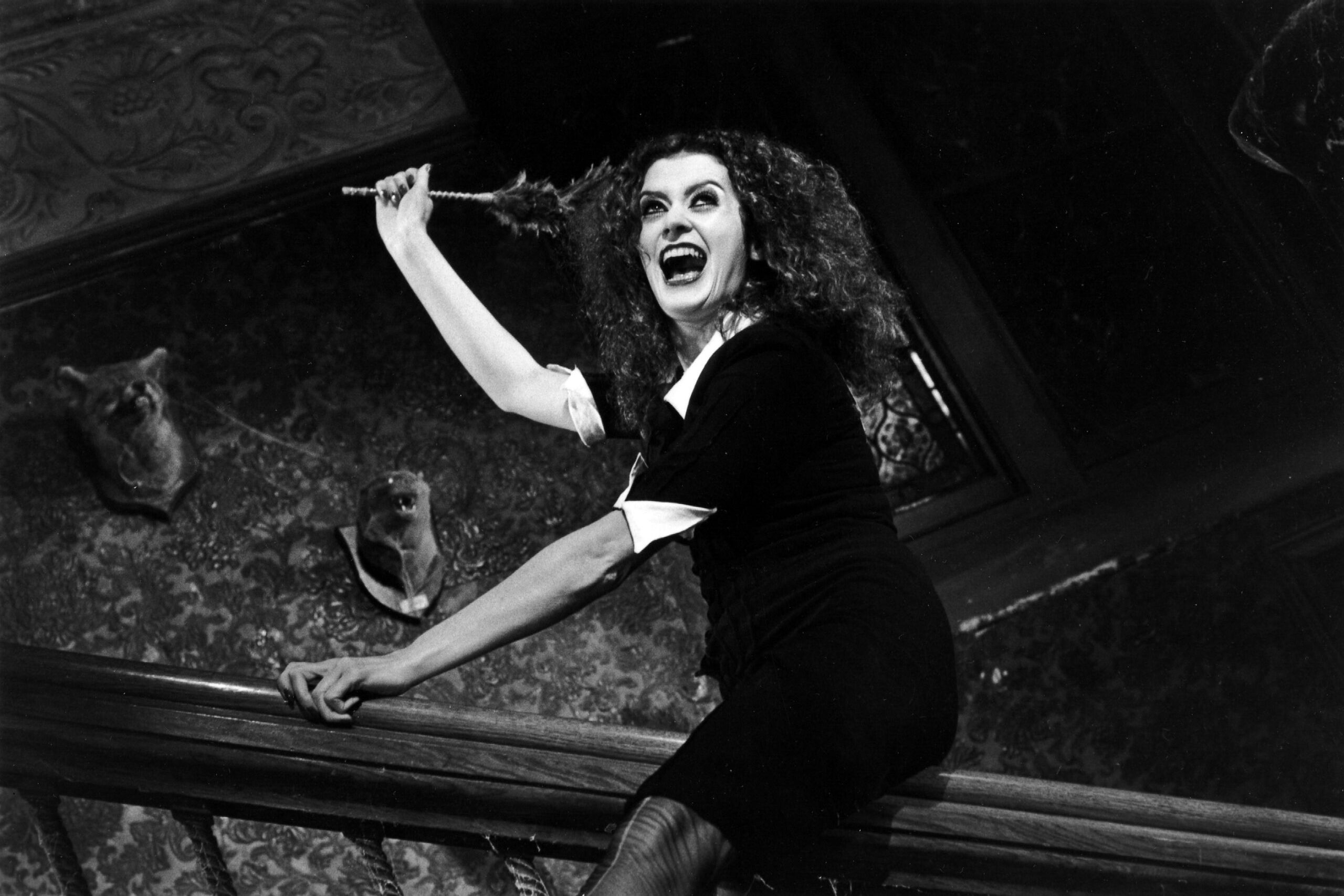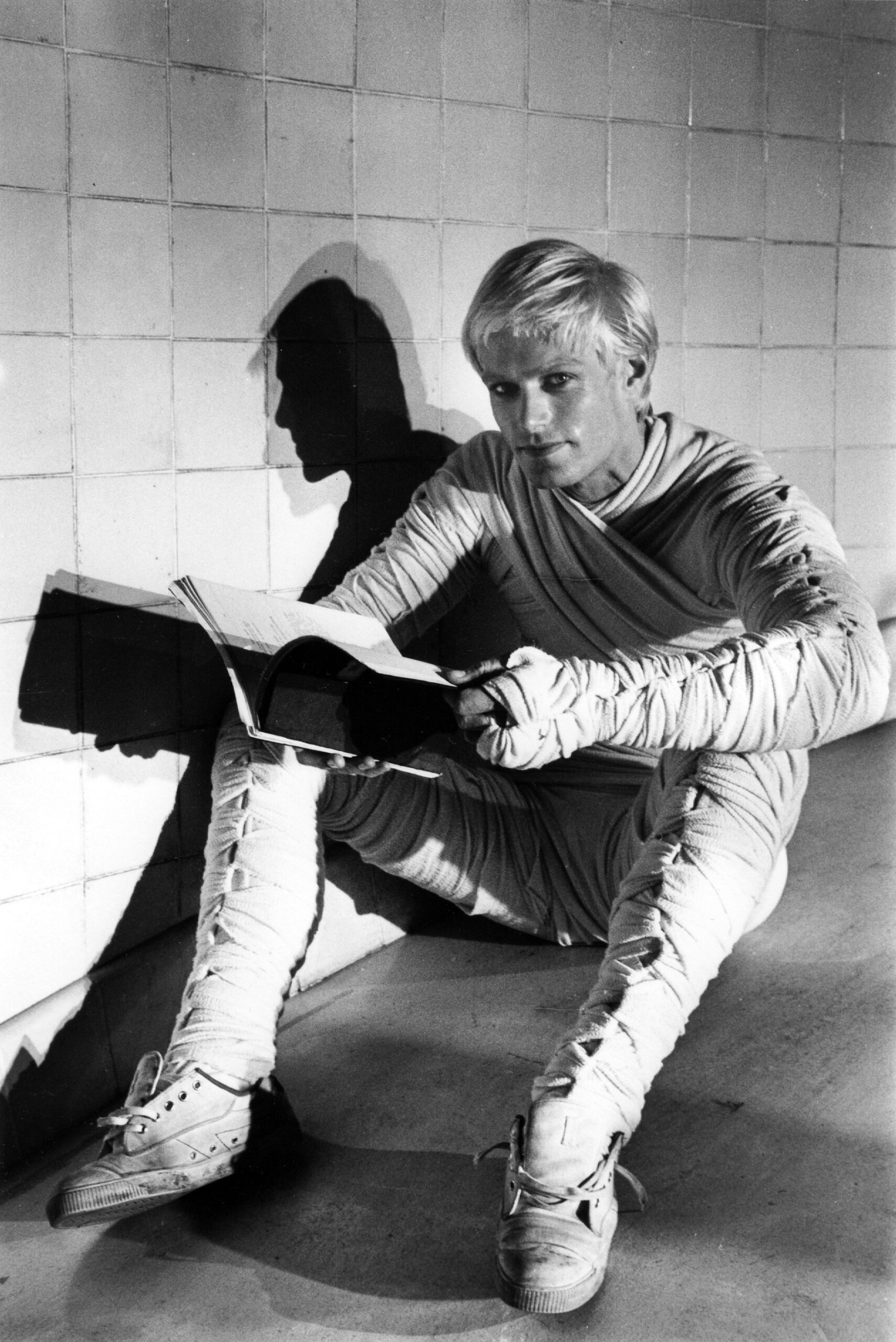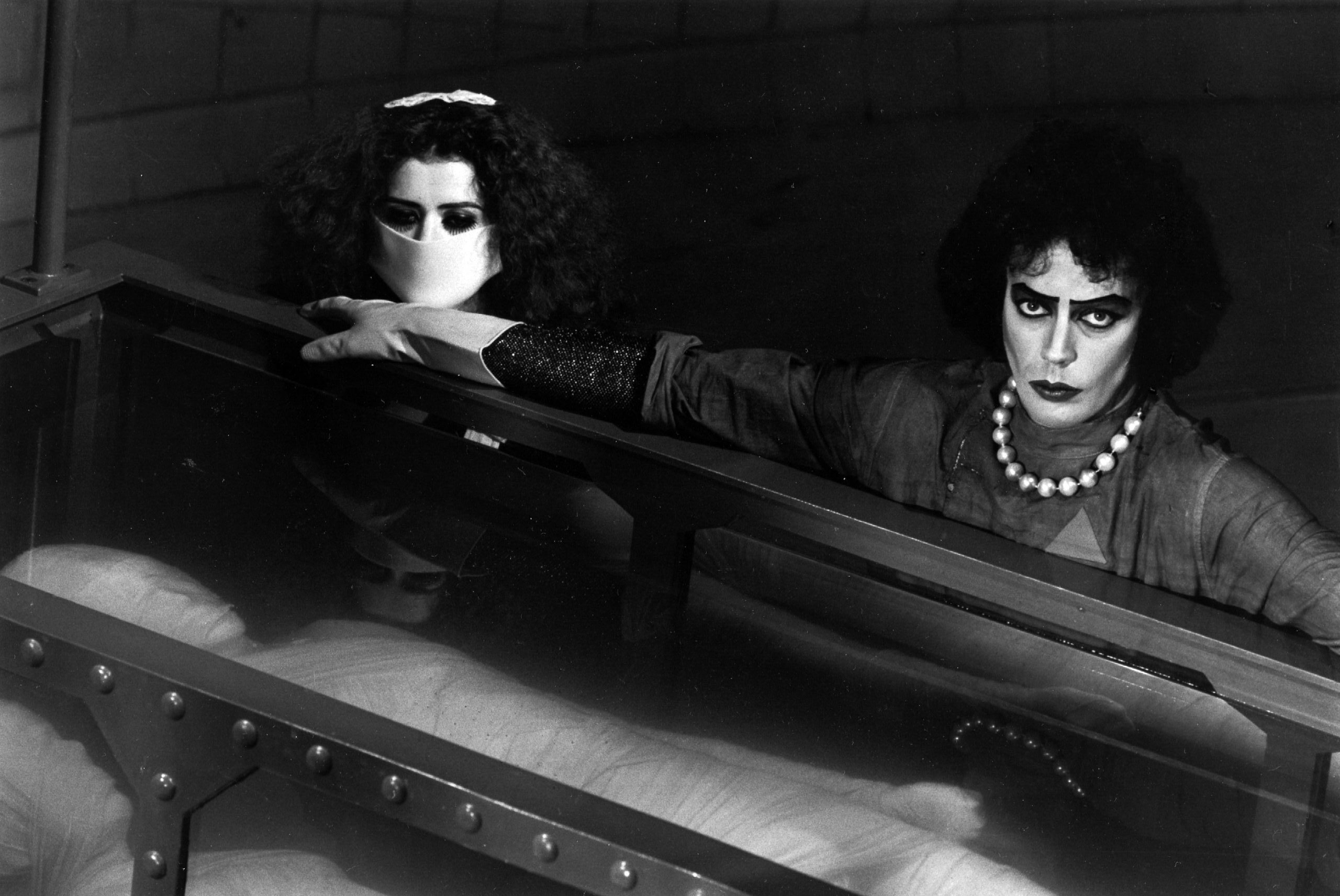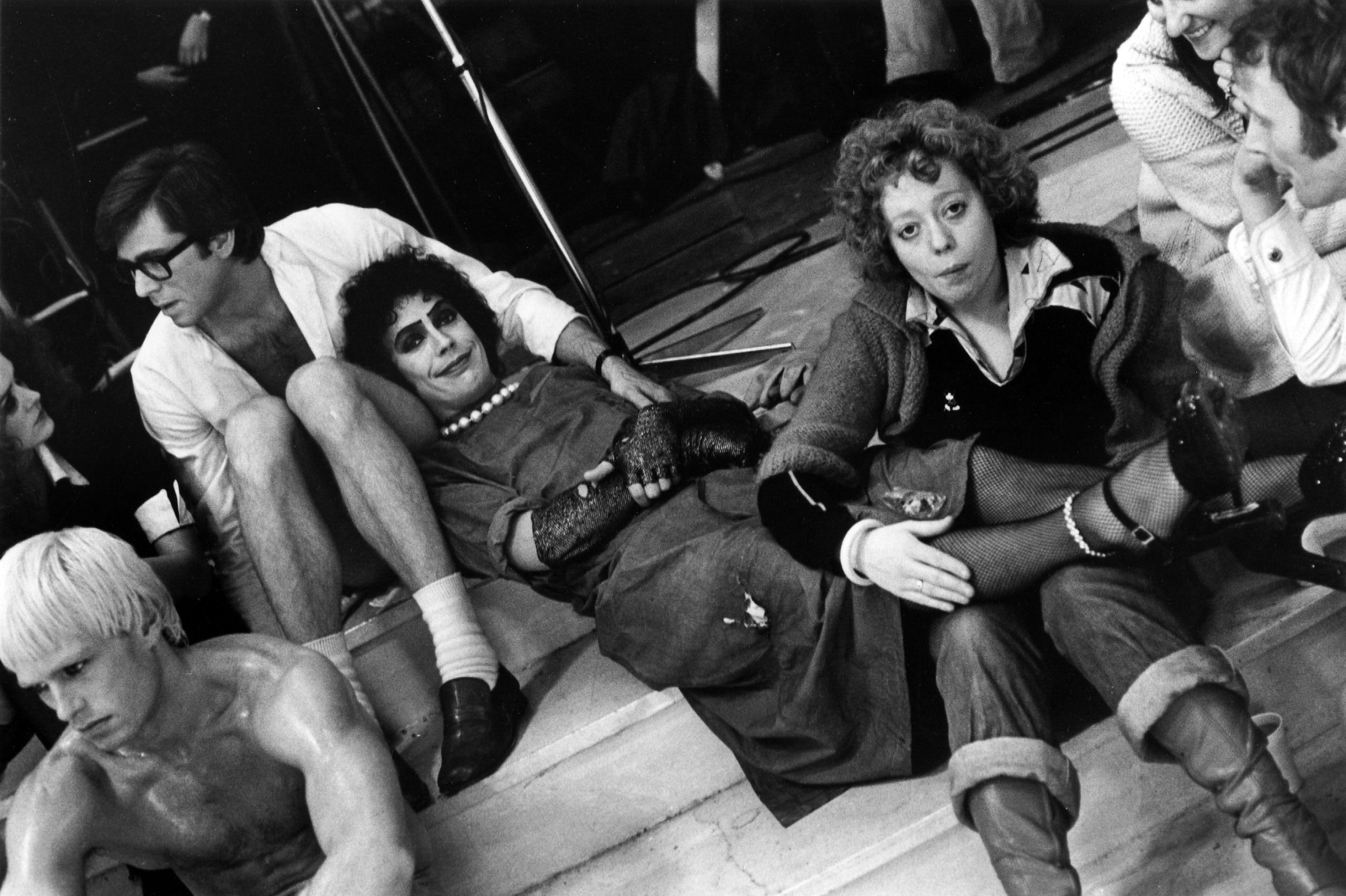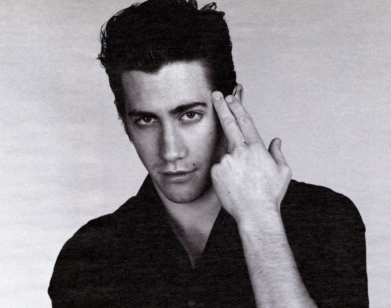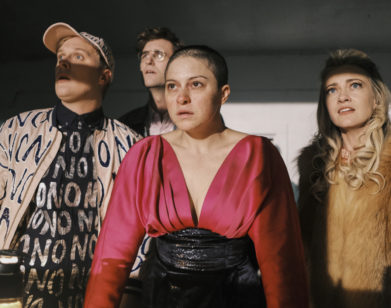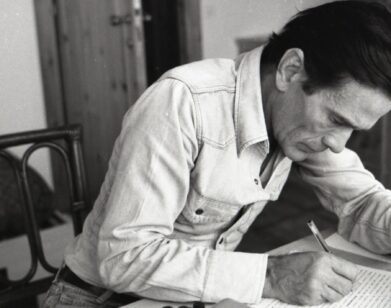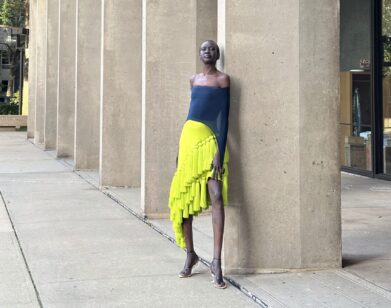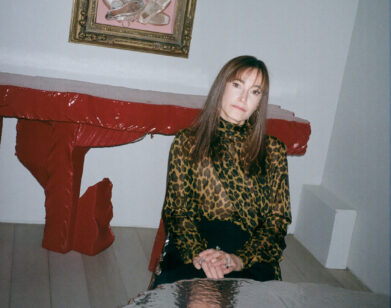ANNIVERSARY
50 Years Later, the Cast of Rocky Horror Is Still Doing the Time Warp
When The Rocky Horror Picture Show premiered in 1975, audiences and critics weren’t quite sure what to make of a movie that seemed to subvert all the conventions of both decorum and genre. Was this horror or musical, a comedy or a B-movie? Based on the stage production that had premiered upstairs at the Royal Court Theatre in London two years earlier, director Jim Sharman’s film adaptation tested modern sensibilities and reveled in provocation, providing a kind of safe haven for weirdos and non-conformists alike. “I don’t think any of us thought it would be such a door-opener,” says Nell Campbell, “a liberator to people who were struggling with their sexuality and coming out to their families.” Indeed, 50 years later, Rocky Horror is a certified queer and camp classic, a phenomenon so enduring that its shadowcast productions, frequently attended by fans in full regalia, continue to sell out theaters worldwide. To mark the movie’s golden jubilee, which coincides with a 4K restoration hitting theaters on October 7th and a nationwide tour, we enlisted the president of the official Rocky Horror fan club, Larry Viezel, to convene a roundtable with the original castmembers, including Campbell, Barry Bostwick, and Patricia Quinn. Below, the trio reflects on the film’s libertine spirit, glam-punk aesthetic, and outsize legacy.
———
NELL CAMPBELL: How the hell is Interview Magazine, and why am I on an angle? [Adjusts camera] Maybe I should do it this way. Is that better?
LARRY VIEZEL: Yeah, that’s good.
CAMPBELL: Larry, how are you, darling?
VIEZEL: I’m great. How are you?
CAMPBELL: Fabulous, darling. Fabulous. Hi, Barry.
BARRY BOSTWICK: Here I am.
VIEZEL: Hi, Patricia.
PATRICIA QUINN: Hi.
CAMPBELL: Pat, darling, press the camera icon.
QUINN: I’m on the hotel phone.
VIEZEL: Are you in New Jersey?
QUINN: Where?
VIEZEL: Are you in New Jersey? It’s a 201 number, so I thought maybe you were in New Jersey.
QUINN: Hopefully not! I’m in Cleveland, Ohio.
CAMPBELL: Why don’t we begin?
VIEZEL: Sure. I’m sure you’ve answered this a ton of times, but it’s been 50 years of Rocky Horror. Why do you think this film is something we’re still talking about 50 years later? Why do you think it’s so beloved?
CAMPBELL: Well, originally, Richard O’Brien described the show when we did it in 1973 at the musical stage as a “fun knees-up.” But here we are 50 years later, and the film is as loved, beloved, inspirational, and liberating to people as it was when it first came out. At the time, I don’t think any of us thought it would be such a door-opener, a liberator to people who were struggling with their sexuality and coming out to their families. And that has continued right to this day because the world is so conservative in general, America specifically. And so, as well as being a fabulous musical with no bad songs, it’s just had that wonderful effect on people with their sexuality and acceptance.
BOSTWICK: It’s been 50 years of fun for me. It’s been 50 years of watching audiences grow up from childhood, little kids dressed up like Magenta when they were eight years old. It’s the commitment, it’s the energy, it’s the—
CAMPBELL: Joy. They’ve created a community, a community of acceptance.
BOSTWICK: Correct. And also, I just think it’s a naughty movie. There’s something really naughty about it, but I think there’s only one dirty word in it. And you don’t really see any flesh other than you, Nell.
CAMPBELL: But no more than we see of you. I mean, we’re all in corsets and fishnets. Mind you, wait a minute, we were naked for those plaster molds of ourselves.
BOSTWICK: Tell me, what was your experience like as they were plastering or molding? Were you standing there naked?
CAMPBELL: Yeah, dead still. You had to stay still for so long till the plaster solidified.
BOSTWICK: And did they smother your body with Vaseline?
CAMPBELL: I suppose they did. I remember the warm plaster going on.
BOSTWICK: I remember the slathering, you remember the plastering.
VIEZEL: Pat, what do you think has kept Rocky Horror alive for 50 years?
QUINN: Well, if I could answer that, I’d be a genius. I couldn’t foresee that. And I’m asked by every fan in the world, “Did you foresee this?” And I always say, “Yes, of course, otherwise I wouldn’t have done it.” But of course, I couldn’t foresee it. Who could? And I’m overwhelmed, because I’m doing a tour across the States now, and I thought I knew everything there was to know about Rocky Horror. And I found out I knew nothing until I went across 50 states of America. It’s extraordinary. One place has 3, 4,000 tickets a night, and it gets sold out. I find it totally wonderful.
VIEZEL: It’s amazing, right? In a lot of places where you wouldn’t really expect Rocky Horror to be this big thing, it is a big thing. It doesn’t stop, does it?
BOSTWICK: And [there are] a lot of virgins I hope, right?
VIEZEL: Talk about that a bit, Barry, the people who are coming to the show for the first time. Do you feel that it’s like a rite of passage? And how have they not heard about it after 50 years? [Laughs]
BOSTWICK: Well, that’s the thing. What rock have they lived under for the last 50 years? [Laughs] But many of them have not seen these costumes, not seen the behavior in this movie in their real lives or their communities. They have not seen or experienced the choices that people are making on this film that may reflect their lives in some way. I think the virgin should see it first with an audience. They should see it first with the whole entertainment value of it, of the whole experience. And then I think they should go home and watch the film in some place where they can actually hear and see the brilliance of what The Rocky Horror Picture Show really is.
CAMPBELL: Well, I beg to differ.
BOSTWICK: Do.
CAMPBELL: I think it’s better to see the film on its own first and to absorb all the elements of what it is. Because when you go to a show with a shadowcast and a big audience, they’re so distracting that it gives you a different impression. And the film holds up so beautifully as it is, which is somehow rather innocent. You’ve got to remember that a lot of people in America feel isolated because it’s such a conservative country in general. They’re in their rooms playing video games and on their computers day in, day out, feeling isolated. So many of those people that we’ve met, the fans started out as isolated nerds and now they’re part of a community. Or their families have kicked them out of the home because they’re either gay, trans, cross-dressing, whatever it is. And they just find these marvelous fellow folk with the same joy for everything that Rocky Horror represents.
BOSTWICK: Many times, when people first see this film, they don’t get it. They’re not just offended by it; they don’t get it. And I think a lot of first-timers, when they see it at home, they’ll go, “Okay, I’ve seen this. I don’t need to do anything else. It is what it is.” But I think if you see it first with nothing, it could turn you off and not want you to get involved in the community.
CAMPBELL: No, no, no. [Laughs] I’m begging right back at you. And here’s the deal. A person, maybe someone that’s more sophisticated, might look at that film and go, “Oh, that’s great, but not for me.” It resonates with people that feel that they are different, and then they see that movie and they go, “Oh my god, that guy’s wearing fishnets and he sleeps with men and women…” So I think people that have those feelings but feel repressed about it, they’re the ones that, even when they see it on their own, they go, “Oh my god, this film is saying all the things that I’ve always felt—and not only is it normal, it’s one of the most famous films ever.” But the people that I think are more blasé, they probably aren’t needing that in their life. What do you think, Pat?
QUINN: I think that in the fifties, something called rock and roll was known as a phenomenon, and Rocky Horror, which we were doing at the theater upstairs, carried on that phenomenon. And I consider that’s what Rocky Horror is about and what it’s done. And as far as Richard O’Brien is concerned, he said they were doing sex, drugs with rock and roll but that Rocky Horror is also a fairy tale. They’re Hansel and Gretel, and that’s what it is. So it’s as simplistic as that, as far as we were concerned at the time, and what people have taken from it is up to them. I’m delighted everyone’s having a good time, and I’m envious of the shadowcasts because I’d like to get up and play me as well.
VIEZEL: And what’s interesting is you can’t go back to before you’ve ever watched it, right? Once you have that, you now know and see everything that it is.
CAMPBELL: That’s right.
BOSTWICK: The core audience is exactly what you’re talking about, but there’s another 900 people in that theater that are just drunk and stoned and want to throw shit.
VIEZEL: [Laughs] That’s part of it too. No matter where you go in the country or the world, there’s always this party happening every weekend somewhere, right?
BOSTWICK: And that’s what we are trying to recreate when we go out on tour—this party atmosphere. I mean, I don’t think 50 years later we’re changing people’s opinions about their own sexuality as much as it did 50 years ago—
CAMPBELL: No, no, you are wrong.
BOSTWICK: I could be.
CAMPBELL: I just went to AT&T next door to where I’m sitting in Cleveland in a cafe. I could tell the person serving me was trans and I couldn’t resist. I said, “Do you know the Rocky Horror…” Anyway, he just nearly died. He’s 37. He said coming out to his father as gay was so hard because he felt that he was going to disappoint his father. And he still hasn’t come out to his father as trans. He hasn’t seen his father since he began his trans journey a couple of years ago. Now, I’m in Cleveland, and so many people still struggle with it. Imagine thinking that was going to be a disappointment to someone. That’s exactly what I mean. People still have those hang-ups and they only have them because that is what is being pressed upon them by the majority of people, until people accept that one’s sexuality and one’s sexual orientation is not a choice. I mean, you don’t choose what sex you identify with and you don’t choose what sex you find attractive, just the way you don’t choose what color your skin is. So why people are judged on those things, I just don’t understand.
BOSTWICK: No, I agree with you. It is apropos for the moment, but a lot of the entertainment value of it is not specifically aimed at that realization by a particular member of the audience.
CAMPBELL: And as we know, there are zillions of heterosexual people who love it as well. I love the straight guys that really want to get dressed up into fishnets and a corset. They usually want to play Frank. Do you think many of them dress as Brad?
BOSTWICK: A few of them do, and occasionally they win and I usually give them a big hug.
VIEZEL: Barry, let’s talk a little bit about that. They say that imitation is the sincerest form of flattery. You’ve met a ton of fans and you’ve seen a ton of shadowcasts. Has there ever been something that’s really kind of blown you away?
BOSTWICK: I mean, I am always impressed when a man who’s perhaps not in the best of shape of his life will strip down to their skivvies and run around on a stage in front of a thousand people. To me, that is such an eye-opening and lovely thing to see that they have that much confidence and are able to get up and do that. Do they still do the underwear run?
VIEZEL: Yeah. That was a big thing in North Carolina, where the underwear run kind of became a cult phenomenon.
CAMPBELL: I do one every morning, but that’s just me. [Laughs]
VIEZEL: The theater has a bit where everyone in the audience runs around the entirety of the auditorium in just their underwear for a minute. It’s really a funny thing to see.
CAMPBELL: I think that’s rather liberating.
BOSTWICK: It is. But I think it’s also been stopped in an awful lot of places.
CAMPBELL: Well, of course.
VIEZEL: It’s great to go to all these theaters and see bits and gags that I’ve never seen before. So I’m going to turn that on to you: What are some funny moments of audience participation that you’ve seen now?
CAMPBELL: I’ll tell you what I’ve loved. The props, the imagination, the incredible extent of time and energy and originality they put into it. It seems like when Frank makes his entrance, they’ll have some hilarious version of the metal elevator door, which I love. And then also one group, for the birth of Rocky, you know how the colored dyes come down? They had one of those little clotheslines that you buy at Target and then they had rolled up pieces of ribbon on each peg, and they would undo the peg and the color would come down. So I’ve adored all those sorts of little details, and every shadowcast has their own variation of everything.
BOSTWICK: I like it when they have fun with the rain scene and when Brad and Janet are in the car and everybody has a different take on how to do the windshield wiper.
CAMPBELL: Now, it’s funny you mention that because I remember very well the first day of rehearsal of The Rocky Horror Picture Show at the theater upstairs in London, in 1973. Jim Sharman asked us all to improvise that rain scene in the car. I don’t know if I’d ever been asked to improvise before in my life. It’s something I have no natural gift for. But Julie Covington and the guy playing Chris Malcolm, they just walked along and did this with their arms.
BOSTWICK: They didn’t even sit.
CAMPBELL: I remember at the time thinking, “God, that’s clever.” And of course Jim went, “That’s it!”
VIEZEL: How would you describe the influence of Rocky Horror? Would you classify it as glam punk?
CAMPBELL: Well, punk had already happened. I don’t see it as glamour punk. I don’t see Rocky Horror as glamorous at all. What’s the word? I mean, I love the costumes and the whole look of it. It’s just so fabulous. In fact, someone told me literally three days ago that [set designer] Brian Thomson had been to a bathroom in Berlin in the sixties and they had pink tiles, and that was his inspiration for making a laboratory of pink tiles. It’s got a fabulous look, the whole thing. But I wouldn’t necessarily call it glamour punk.
VIEZEL: Yeah, and the tiles in the scene, they’re not all the same color. They’re all slightly different versions of pink. And it kind of gives you that feeling of it being alien, as though Frank and Riff and Magenta came and they decorated the castle and tried to mimic something they’d seen in human culture but didn’t get it quite right.
CAMPBELL: It’s things like that which are why the film never dates. We started rehearsals for Rocky Horror with very few pages of dialogue and maybe half the number of songs. And there would’ve never been a Rocky Horror without Jim Sharman, Brian Thompson, Sue Blaine, and Richard Hart, the musical producer. And the casting of Tim Curry was essential performance-wise. It was a magical creative team.
VIEZEL: It really was lightning in a bottle, and it’s a miracle that it all kind of turned out to be what it was. You had to have the right pieces in there to make the magic happen.
CAMPBELL: That’s right. And by the way, I say that without taking away anything from Richard O’Brien, who was essential. He wrote the songs, but Jim was the one telling him, “Now you need to write this sort of song.” Or, “Let’s open with a wedding scene and let’s not have Tim Curry appear for the first 15 minutes of the movie.” Things like that, that was all Jim.
VIEZEL: Right. Barry, when you worked with Jim on the movie, how did his way of thinking up things almost on the fly translate into the movie? What ideas did you see him come up with?
BOSTWICK: I didn’t see him. [Laughs] I barely talked to him other than maybe getting directions like, “Hey, pull it back a little bit, Barry. You’re a little over the top,” or something like that. And I was always just so astonished by his ability to keep all the acting on one level. A heightened level, but realistic to the story.
CAMPBELL: That’s exactly right. Jim always said to us, “You have to play it for real. You can’t send up a send-up.” It’s like when people imitate Donald Trump. Alec Baldwin got it all wrong. When someone is that big, you’ve just got to be that person. And as someone said, “Tim Curry never played it as a drag queen. He played it for real.” And that’s exactly why Brad and Janet worked so well, because everyone’s playing it for real. People overact it all the time now. It’s way over the top and way too camp. We all played it for real, which was so much more effective.
VIEZEL: I think the reality of those performances has helped maintain the film’s longevity.
CAMPBELL: Totally.
BOSTWICK: It’s funny, because the moments that pop out at me of my performance are always things that are a little too over the top.
CAMPBELL: Which bits?
BOSTWICK: Let’s see. Well, during the sex scene with Tim, I think if I could re-voice that part I would not have gone, “Never, never.” I would’ve been a little bit more grounded.
CAMPBELL: But you know what? I think that’s a hard line to say.
BOSTWICK: [Laughs] Yeah, yeah.
CAMPBELL: Do you love these details? Have you had enough of this, darling Larry?
VIEZEL: Yeah, I think we can wrap it up.
BOSTWICK: I learned a lot. And long live Interview Magazine!

